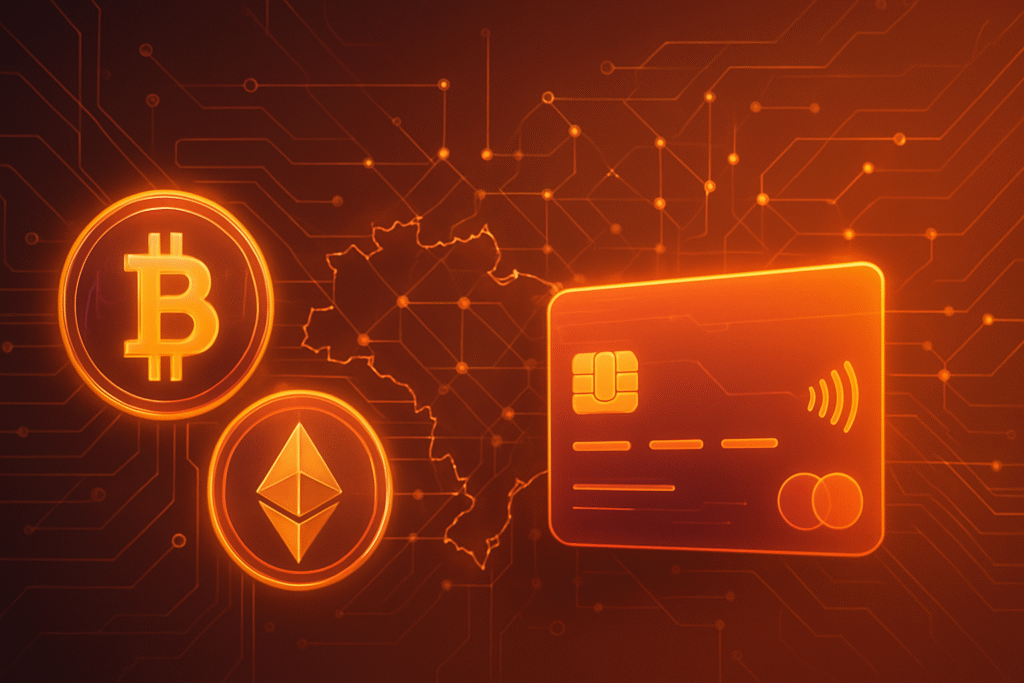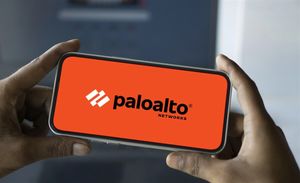
SÃO PAULO, BRAZIL – October 1, 2025 – Brazil's burgeoning cryptocurrency market just received a significant boost with two of the world's largest exchanges, Binance and OKX, launching and relaunching their respective crypto payment cards in the country. Binance, which initially introduced its card in early 2023, has relaunched its Binance Card in partnership with Mastercard (NYSE: MA), while OKX has officially debuted its OKX Card alongside its OKX Pay digital account. These simultaneous moves mark a pivotal moment for digital asset adoption in Brazil, transforming cryptocurrencies from speculative investments into practical tools for everyday financial transactions.
The immediate market reaction, while still unfolding, points to heightened enthusiasm within Brazil's already vibrant crypto community. Analysts are closely watching how these initiatives will cement cryptocurrencies' role in daily commerce, potentially setting a precedent for other emerging markets. The launches underscore Brazil's strategic importance as a global hub for crypto innovation, where a large and tech-savvy population has shown a remarkable openness to digital financial solutions. This development is expected to significantly accelerate the integration of digital assets into the mainstream financial ecosystem, offering unprecedented utility and accessibility for millions of Brazilians.
Market Impact and Price Action
While it's early to assess definitive price movements directly attributable to these launches, the enhanced utility provided by crypto payment cards typically fosters a more robust and liquid market for the supported digital assets. Tokens like Bitcoin (BTC), Ethereum (ETH), BNB, and various stablecoins (USDT, BUSD) are likely to see increased transactional volume as they become more readily spendable. The real-time conversion features of both cards mean that users can leverage their crypto holdings for purchases without needing to manually convert to Brazilian Real (BRL) beforehand, streamlining the process and potentially reducing friction for new entrants.
The long-term impact could include a gradual increase in demand for these cryptocurrencies, not just as investment vehicles but as functional currencies. This could contribute to more stable price action, driven by utility rather than pure speculation. For instance, the Binance Card supports 14 cryptocurrencies, including popular altcoins like ADA, DOT, SOL, SHIB, XRP, MATIC, and LINK, potentially boosting their on-chain activity and overall market depth in Brazil. OKX's strategy, with its USD-denominated, stablecoin-backed OKX Pay account, could also attract users looking for a hedge against local currency fluctuations while avoiding Brazil's international taxes (IOF) on foreign transactions, thereby increasing stablecoin adoption. Historically, markets that introduce easier on-ramps and off-ramps for crypto tend to experience increased trading volumes and a more diverse participant base. This launch positions Brazil at the forefront of this trend.
Community and Ecosystem Response
The crypto community in Brazil, known for its high engagement and rapid adoption rates, has greeted these developments with widespread optimism. Social media platforms, including Crypto Twitter and Reddit, are abuzz with discussions about the convenience and potential for financial empowerment these cards offer. Influencers and thought leaders within the Brazilian crypto space are highlighting the practical implications, emphasizing how these cards bridge the gap between digital assets and traditional commerce. Many see this as a validation of cryptocurrencies' long-term viability and a step towards true mass adoption.
Beyond individual users, the broader crypto ecosystem stands to benefit. Increased liquidity and easier fiat on/off-ramps provided by these cards can invigorate DeFi protocols, NFT projects, and Web3 applications operating within Brazil. As more users become comfortable spending crypto in their daily lives, it could lead to higher engagement with decentralized applications and a greater willingness to explore the broader Web3 landscape. The ability to seamlessly convert crypto to BRL at the point of sale removes a significant barrier to entry for many, fostering a more inclusive and dynamic digital economy. This ease of use is particularly important in a country where financial inclusion remains a key challenge, offering alternative solutions for the unbanked and underbanked population.
What's Next for Crypto
The launch of these crypto payment cards by Binance and OKX heralds a new phase for digital asset integration in Brazil and potentially globally. In the short term, we can expect a surge in card applications and usage, providing valuable data on consumer behavior and preferred cryptocurrencies for daily spending. This will likely spur further innovation among fintech companies and other exchanges vying for market share in the rapidly expanding crypto payments sector.
Long-term implications include accelerated mainstream adoption of cryptocurrencies as legitimate payment methods. The Central Bank of Brazil (BCB), which is developing a new crypto licensing framework expected by November 2025 and formal VASP regulations by 2026, will be closely monitoring these developments. The success and widespread use of these cards could influence future regulatory approaches, potentially leading to clearer guidelines that foster innovation while ensuring consumer protection. Strategic considerations for projects and investors will shift towards utility-driven models, focusing on real-world applications and seamless integration with traditional finance. Potential catalysts include further partnerships with major retailers, expanded cashback programs, and the eventual full implementation of Brazil's comprehensive crypto regulatory framework, which could provide even greater clarity and stability for the market.
Bottom Line
The launch of crypto payment cards by Binance and OKX in Brazil is a landmark event that signifies a major leap forward for digital asset adoption. For crypto investors and enthusiasts, it means enhanced utility for their holdings and a tangible step towards a future where cryptocurrencies are an integral part of everyday financial life. The ability to spend crypto at over 90 million Mastercard (NYSE: MA) merchants globally, or seamlessly via virtual cards linked to mobile wallets, dramatically increases the practical value of digital assets.
The long-term significance of these launches cannot be overstated. They represent a powerful bridge between the innovative world of crypto and the established financial system, driving both financial inclusion and technological advancement. As Brazil continues to refine its regulatory landscape, the experience gained from these payment card initiatives will be crucial in shaping a robust and secure digital economy. Important metrics to monitor include transaction volumes, user adoption rates, the types of cryptocurrencies being spent most frequently, and the ongoing dialogue between exchanges and regulators. These developments in Brazil offer a compelling case study for how emerging markets with high crypto affinity can lead the charge in global digital finance.
This article is for informational purposes only and does not constitute financial or investment advice. Cryptocurrency investments carry significant risk.








